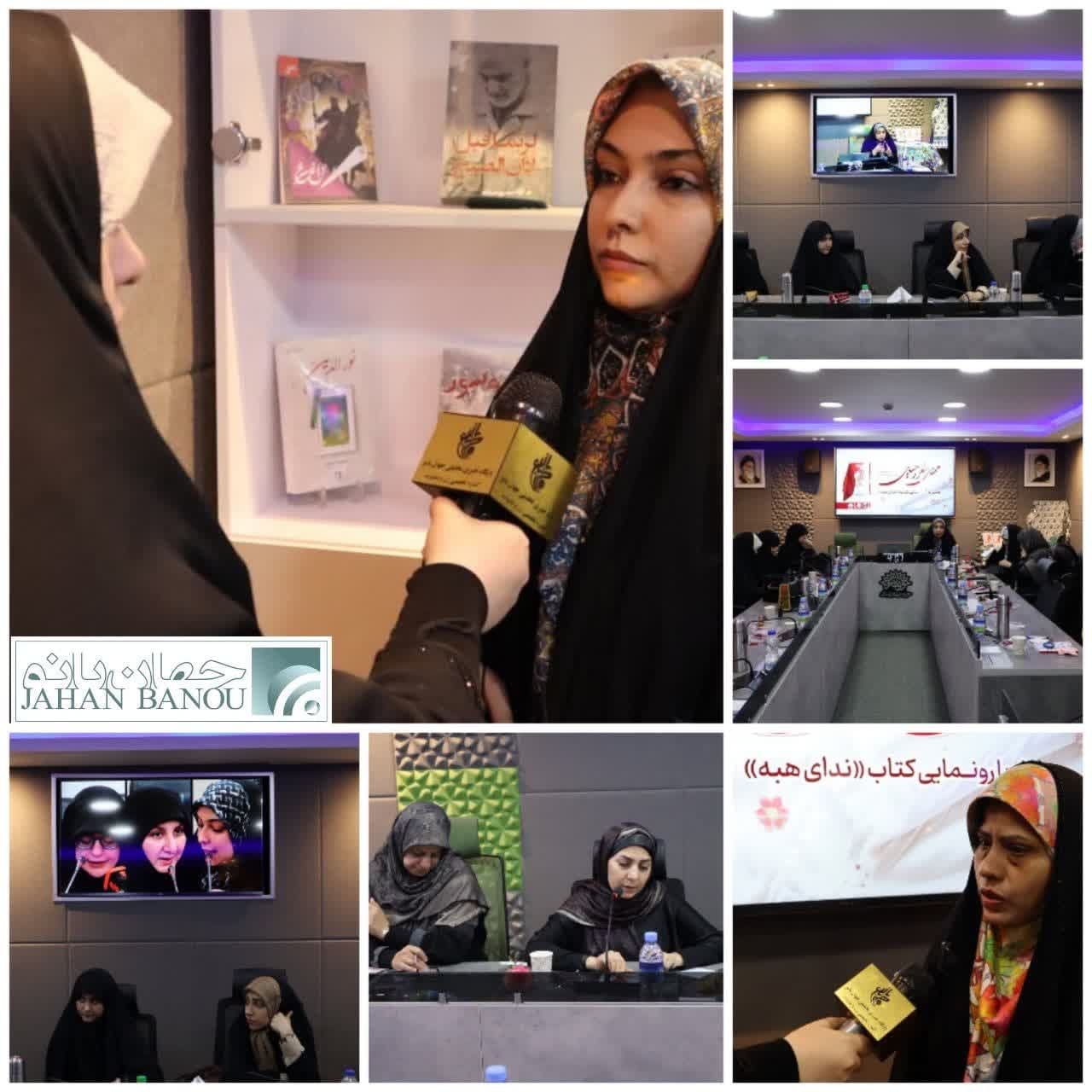A literary event held at the Art Bureau in Tehran, featuring both Iranian and international poets, highlighted the powerful role of women in resistance through the lens of poetry and media.
✍| By Mahta Sanei, Reporter
Honoring Influential Women
The second “Rahil” gathering, organized by the Center for Women’s Guidance and Coordination of the Islamic Propagation Organization, brought together poets and cultural activists from Iran and around the world. The event centered on the theme of “Influential Women in History” and included the unveiling of the book “Nedaye Hiba” (The Call of Hiba).
International Participation and Book Launch
The ceremony, held on Tuesday, May 6th, featured the participation of Houra Allam, a media activist from Syria, and Aini Razavi, a poet and cultural activist from India. A key moment was the unveiling of “Nedaye Hiba,” a collection of poems by women focusing on resistance and the heroic acts of women on both soft and physical battlefronts.
A Call to Poetry on the Anniversary of Operation Al-Aqsa Storm
On the eve of the one-year anniversary of Operation Al-Aqsa Storm and coinciding with the martyrdom of high-ranking commanders of the Axis of Resistance, the Center for Women’s Guidance and Coordination of the Islamic Propagation Organization issued a call to female poets across the country. The aim was to capture the spirit of resilience and the patience of mothers of resistance through their powerful verses.
Perspectives on Women’s Role in Resistance
During the “Rahil” poetry gathering, several female cultural and media activists shared their perspectives on the significant role women play in the arena of resistance.
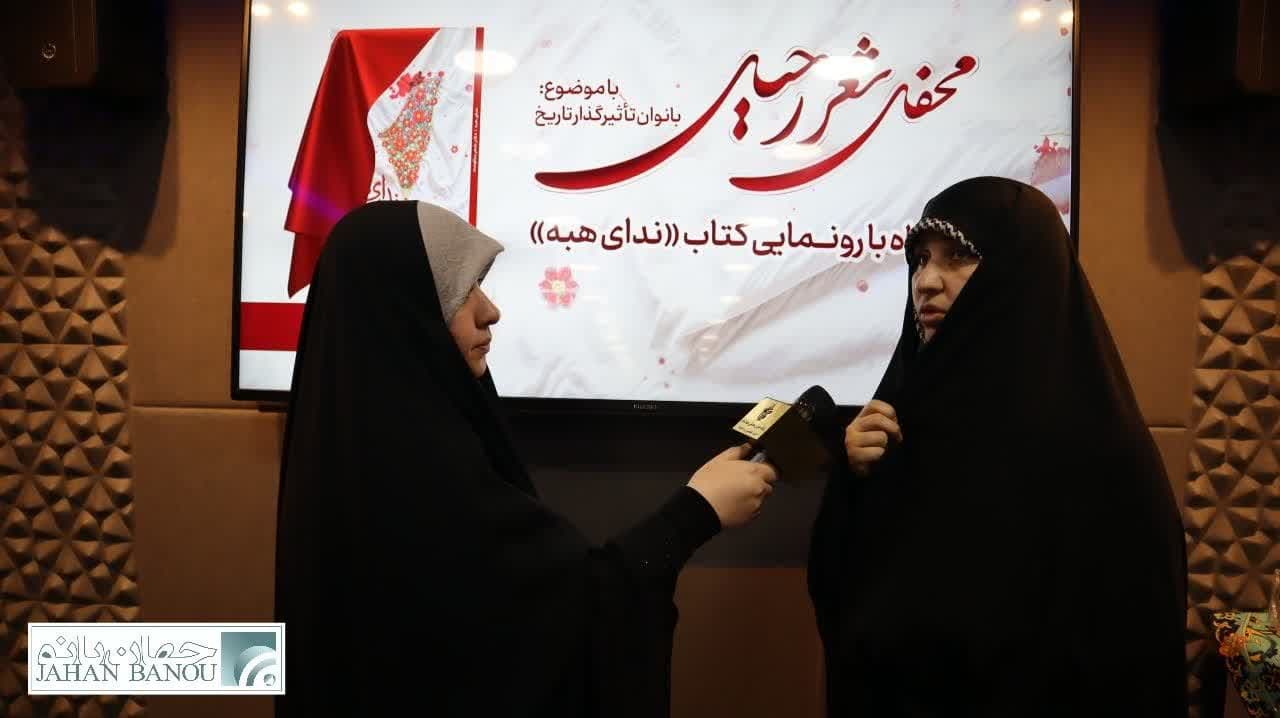
Voices of Cultural and Media Activists
Dr. Sara Talebi (Director of the Center for Women’s Guidance and Coordination of the Islamic Propagation Organization):
By the grace of God, despite the bitterness and numerous difficulties, the resistance movement has provided an opportunity to discover our inner capacities and untapped potentials. One of the most important of these capacities is the role played by women, mothers, and daughters on the front lines of resistance – women who persevere in this path with patience, hope, and a vision for the future.
In this regard, by utilizing the tools of narration, art, and media, we have strived to convey the greatness of these women. Despite the media dominance of opposing currents that seek to distort realities, if we in the global geography of resistance have a duty, it is to prioritize strengthening media tools and narrative technology.
The “Nedaye Hiba” movement, which began with a call to female poets, demonstrated that the women of this land possess burning hearts, profound words, and unparalleled capacities to narrate resistance. In the words of Hazrat Zeinab (peace be upon her), “I saw nothing but beauty.” These women can see beauty amidst hardships, keep hope alive, and pave the way for the victory of future generations.
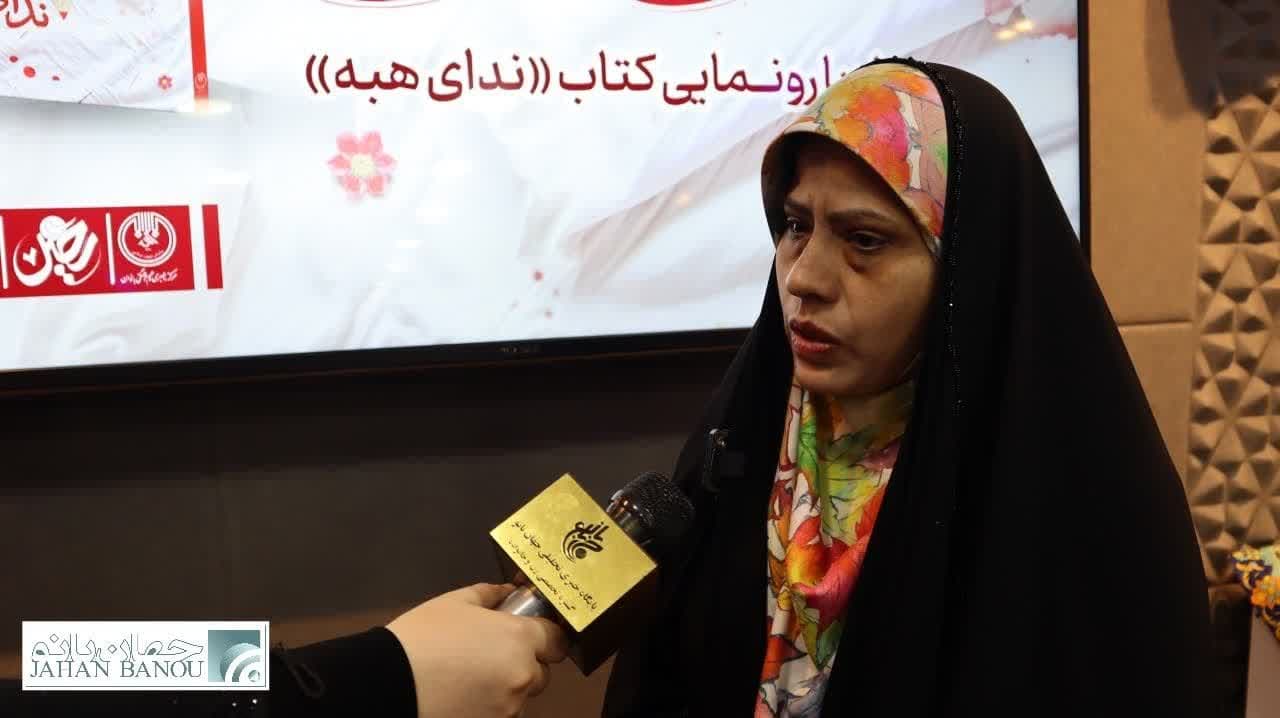
Aini Razavi (Poet and Cultural Activist from India):
Since childhood, I have been in love with Iran and have witnessed firsthand the sacrifices of Iranian women. My role model is Hazrat Fatima Zahra (peace be upon her); the Fadak sermon has been an inspiration to me, and I have translated it and composed poetry based on it. Poetry has a profound impact on the human spirit, just as poets in early Islam stood alongside the Mujahideen. Today, I have also composed a poem in support of the Supreme Leader, which is very effective in strengthening the morale of the Mujahideen.
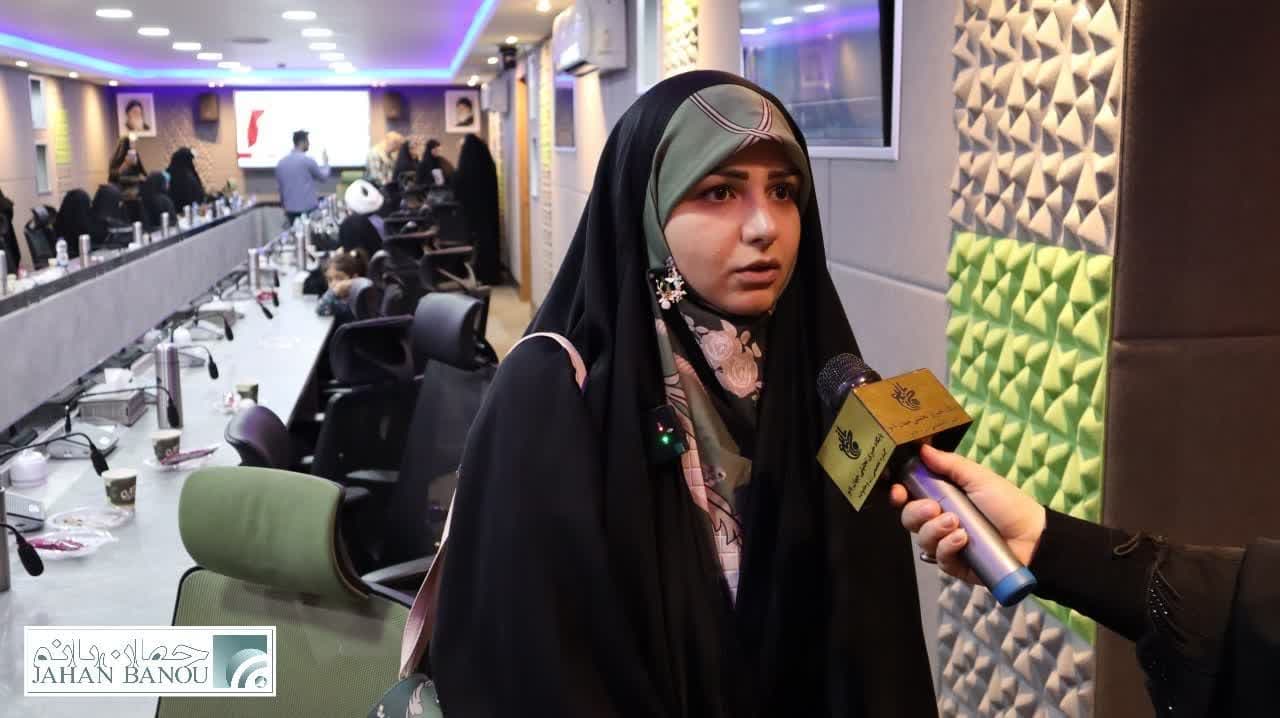
Dr. Arefeh Dehghani (Successful Poet in the Realm of Women’s Resistance):
Women around the world, especially when resistance is involved, have shown that they can convey their message to the world through media and art. Each person has taken steps in this path with their own unique tools – one with poetry, another with calligraphy or painting. Women, especially mothers, have been able to reflect emotion and epic narratives effectively and have been influential in the global arena, sometimes even more so than the men in this field.
Many influential women in history whose names were previously overlooked have been recognized through these efforts. We must unearth the history of these women from the forgotten pages and introduce them to today’s generation through the language of art. For example, today I heard a poem about Mrs. Nasibeh, a figure I was unaware of before. Such women are our historical assets, and we must focus more on making them known.
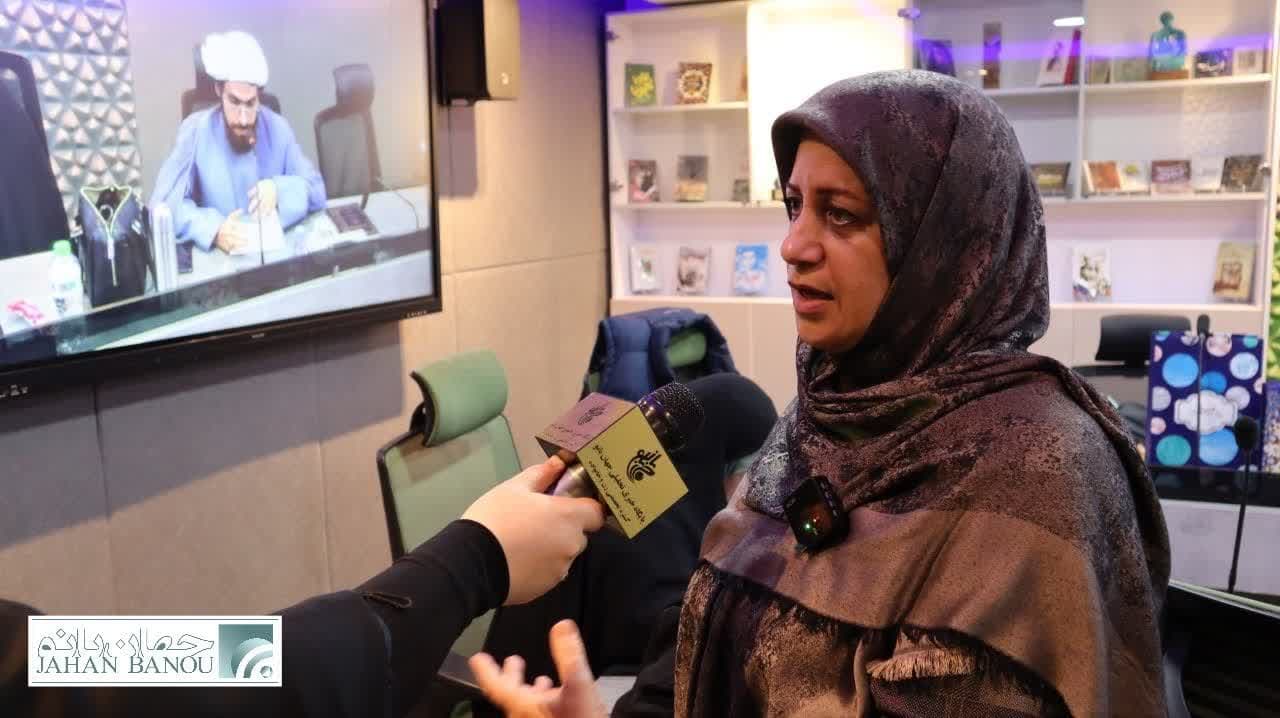
Fariba Yousefi (Poetry Professor and Secretary of Various Literary Congresses):
Studying the historical trajectory of resilient women reveals that most of these women arose from within families – women who emerged as pillars of the family and displayed the same steadfastness in society. This trend has gradually moved towards a more active presence in society, with women moving beyond the confines of the home to play influential roles in media, art, poetry, photography, and other fields.
These women, while maintaining their position within the family, have also become role models in the social sphere. A prime example is the martyred Hiba Abu Nada from Gaza, who, while fulfilling her family responsibilities, had an active and influential presence in the social arena and ultimately sacrificed her life in this path.
The social role of women in the past has often been either overlooked or portrayed in cliché and unrealistic ways. However, today, such gatherings and movements allow society to pay attention to the true and unique capacities of women – women who are no longer solely recognized by their gender identity but who are establishing their position through healthy and responsible participation in society.
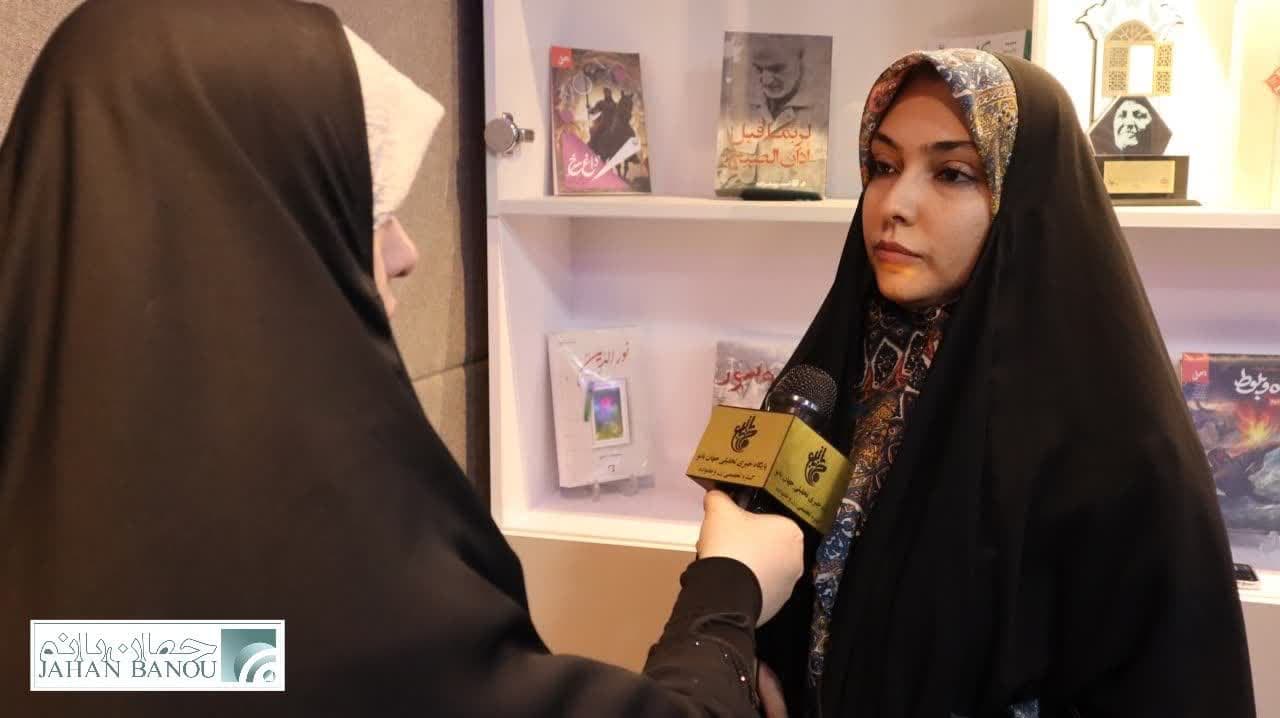
Dr. Samaneh Khalafzadeh (Secretary of the Rahil Poetry Congress):
Today’s world is a world of media. Our enemies, with their media power, conceal truths and distort realities. We, too, must strengthen our media and convey the thought of resistance to the world in a purposeful and organized manner.
The series of “Rahil” poetry gatherings, focusing on influential women in history, is being held in various cities across the country. The first gathering was held in Qom province, and the second in the Art Bureau of Tehran, in cooperation with the Center for Women’s Guidance and Coordination of the Islamic Propagation Organization. This gathering, benefiting from the speeches of professors, outstanding poems, and the unveiling of a book centered on resistance, was very rich and valuable. It is hoped that in the continuation of this series of gatherings, we will witness the expansion of this movement throughout the country.
It is worth noting that the book “Nedaye Hiba” is named as a cultural tribute to the martyrs of resistance, especially the martyred poet from Gaza, Hiba Kamal Abu Nada – a woman who stood on the front lines of artistic jihad and resistance and ultimately sacrificed her life in this path.
Furthermore, the series of “Rahil” poetry gatherings, as a continuation of cultural and artistic sessions focusing on influential women in history, intends to be held in various cities across the country. The aim is to cultivate the literature of women’s resistance and to convey the voices of resilient mothers, daughters, and wives to the world.


